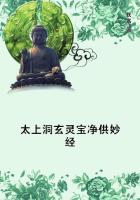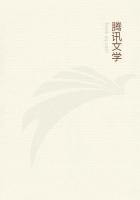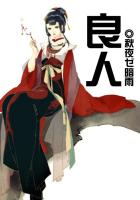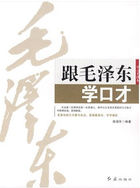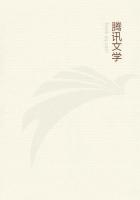COMBINATION OF THE TWO ELEMENTS.
I. BIRTH OF A DOCTRINE, A REVELATION.
The doctrine, its pretensions, and its character. - A new authority for Reason in the regulation of human affairs. - Government thus far traditional.
OUT of the scientific acquisitions thus set forth, elaborated by the spirit we have just described, is born a doctrine, seemingly a revelation, and which, under this title, was to claim the government of human affairs. On the approach of 1789 it is generally admitted that man is living in "a century of light," in "the age of Reason;"that, previously, the human species was in its infancy and that now it has attained to its "majority." Truth, finally, is made manifest and, for the first time, its reign on earth is apparent. The right is supreme because it is truth itself. It must direct all things because through its nature it is universal. The philosophy of the eighteenth century, in these two articles of faith, resembles a religion, the Puritanism of the seventeenth century, and Islam in the seventh century. We see the same outburst of faith, hope and enthusiasm, the same spirit of propaganda and of dominion, the same rigidity and intolerance, the same ambition to recast man and to remodel human life according to a preconceived type. The new doctrine is also to have its scholars, its dogmas, its popular catechism, its fanatics, its inquisitors and its martyrs. It is to speak as loudly as those preceding it, as a legitimate authority to which dictatorship belongs by right of birth, and against which rebellion is criminal or insane.
It differs, however, from the preceding religions in this respect, that instead of imposing itself in the name of God, it imposes itself in the name of Reason.
The authority, indeed, was a new one. Up to this time, in the control of human actions and opinions, Reason had played but a small and subordinate part. Both the motive and its direction were obtained elsewhere; faith and obedience were an inheritance; a man was a Christian and a subject because he was born Christian and subject. --Surrounding the nascent philosophy and the Reason which enters upon its great investigation, is a system of recognized laws, an established power, a reigning religion; all the stones of this structure hold together and each story is supported by a preceding story. But what does the common cement consist of, and where is the basic foundation? -- Who sanctions all these civil regulations which control marriages, testaments, inheritances, contracts, property and persons, these fanciful and often contradictory regulations? In the first place immemorial custom, varying according to the province, according to the title to the soil, according to the quality and condition of the person; and next, the will of the king who caused the custom to be inscribed and who sanctioned it. -- Who authorizes this will, this sovereignty of the prince, this first of public obligations? In the first place, eight centuries of possession, a hereditary right similar to that by which each one enjoys his own field and domain, a property established in a family and transmitted from one eldest son to another, from the first founder of the State to his last living successor; and, in addition to this, a religion directing men to submit to the constituted powers. -- And who, finally, authorizes this religion? At first, eighteen centuries of tradition, the immense series of anterior and concordant proofs, the steady belief of sixty preceding generations; and after this, at the beginning of it, the presence and teachings of Christ, then, farther back, the creation of the world, the command and the voice of God. --Thus, throughout the moral and social order of things the past justifies the present; antiquity provides its title, and if beneath all these supports which age has consolidated, the deep primitive rock is sought for in subterranean depths, we find it in the divine will.
-- During the whole of the seventeenth century this theory still absorbs all souls in the shape of a fixed habit and of inward respect;it is not open to question. It is regarded in the same light as the heart of the living body; whoever would lay his hand upon it would instantly draw back, moved by a vague sentiment of its ceasing to beat in case it were touched. The most independent, with Descartes at the head, "would be grieved" at being confounded with those chimerical speculators who, instead of pursuing the beaten track of custom, dart blindly forward "in a direct line across mountains and over precipices." In subjecting their belief to systematic investigation not only do they leave out and set apart "the truths of faith,"[1] but again the dogma they think they have thrown out remains in their mind latent and active, to guide them on unconsciously and to convert their philosophy into a preparation for, or a confirmation of, Christianity.[2] -- Summing it all up, faith, the performance of religious duties, with religious and political institutions, are at base of all thought of the seventeenth century. Reason, whether she admits it or is ignorant of it, is only a subaltern, an oratorical agency, a setter-in-motion, forced by religion and the monarchy to labor in their behalf. With the exception of La Fontaine, whom Iregard as unique in this as in other matters, the greatest and most independent, Pascal, Descartes, Bossuet, La Bruyère, borrows from the established society their basic concepts of nature, man, society, law and government.[3] So long as Reason is limited to this function its work is that of a councilor of State, an extra preacher dispatched by its superiors on a missionary tour in the departments of philosophy and of literature. Far from proving destructive it consolidates; in fact, even down to the Regency, its chief employment is to produce good Christians and loyal subjects.

